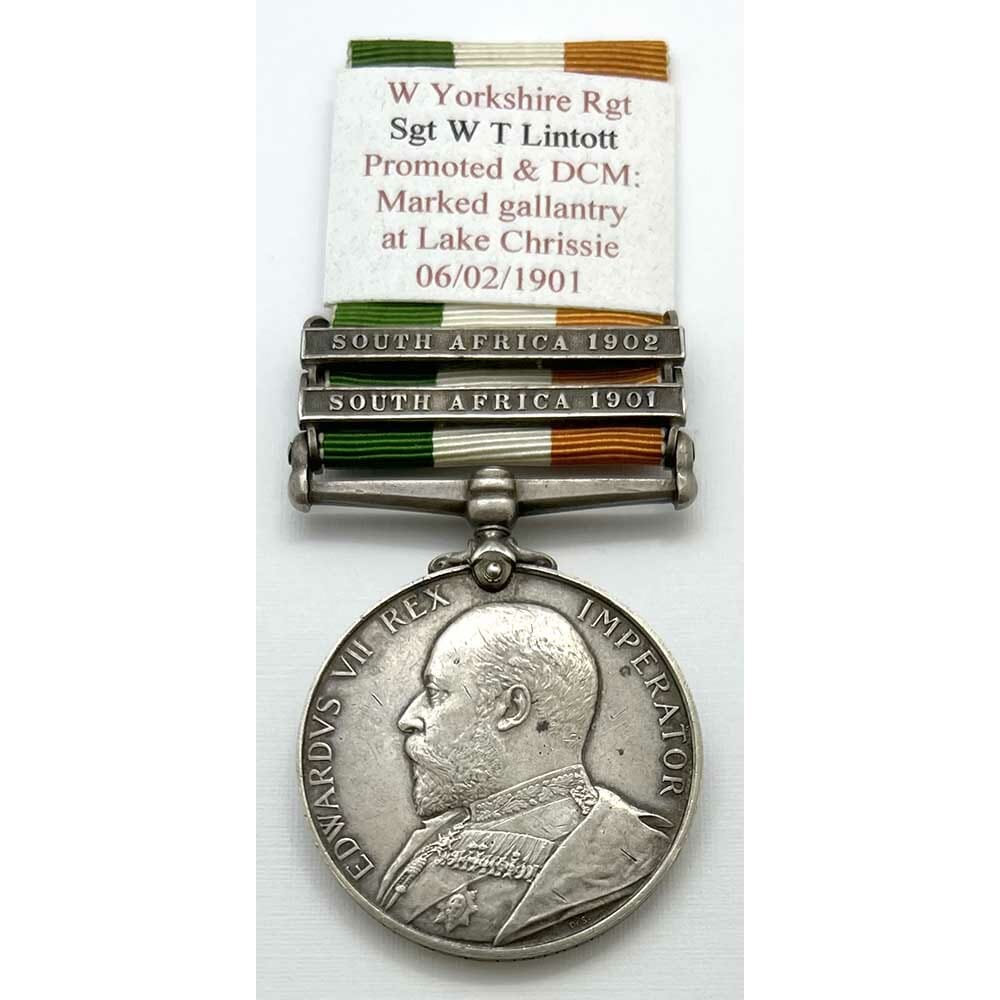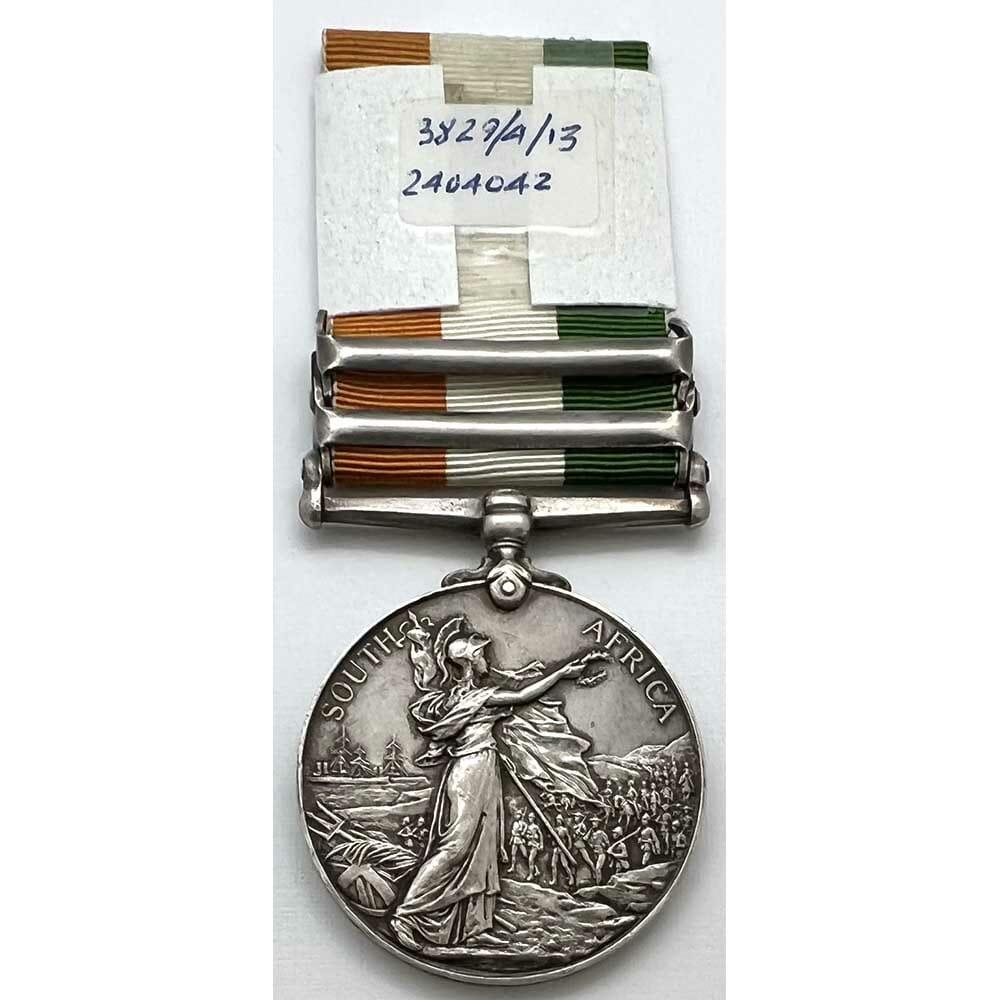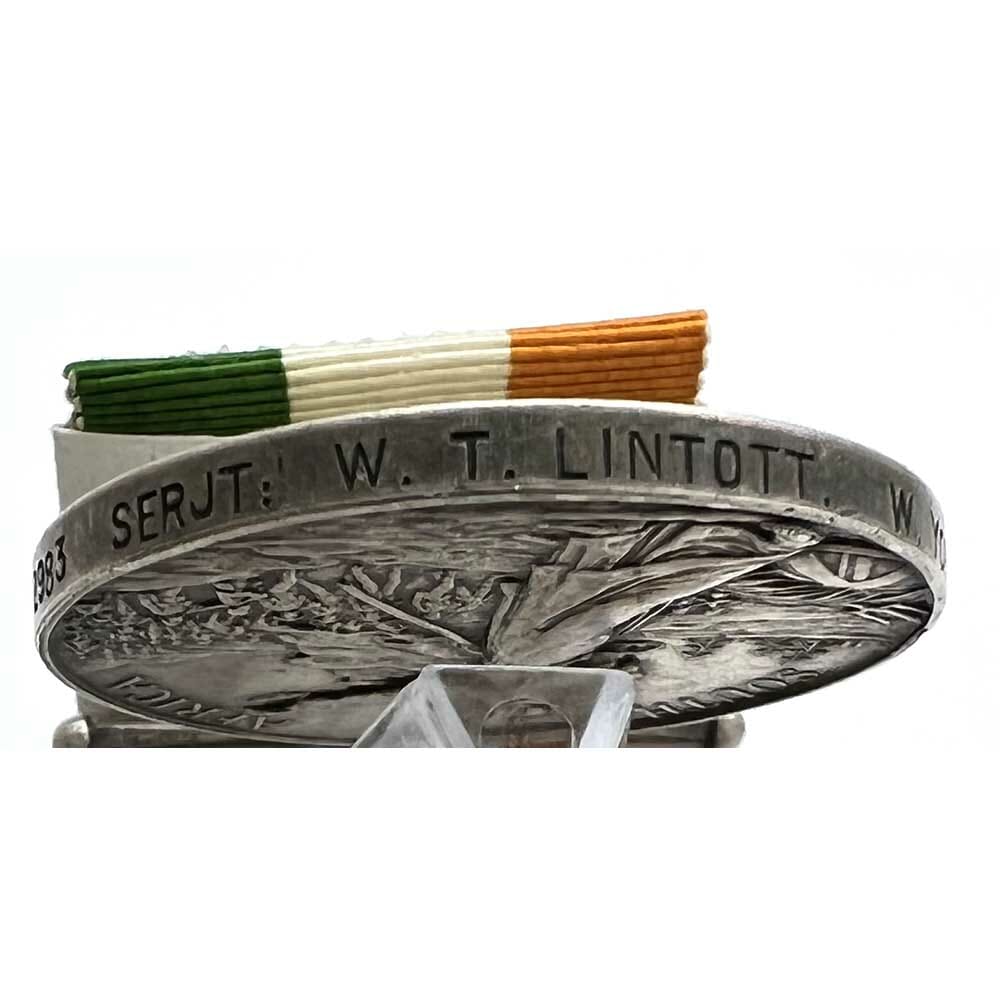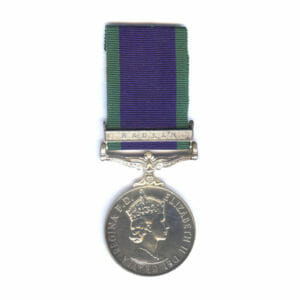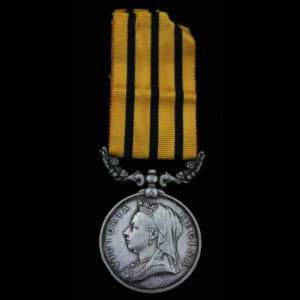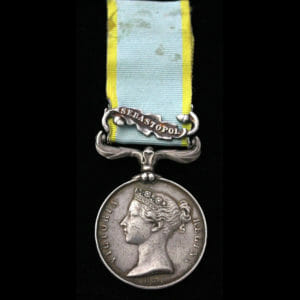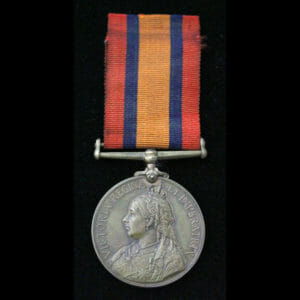Description
A stunning K.S.A., 2 bars, Sergeant W.T. Lintott D.C.M. West Yorkshire Regiment, promoted on the spot and awarded the D.C.M. at Lake Chrissie, shared his citation with Victoria Cross winner William Traynor who was the only NCO or Private from the regiment to earn a VC in the Boer War.
William Thomas Lintott, was a long serving soldier, Ashanti War of 1896 Veteran, convicted deserter for 4 years, spent most of his early years in prison, by either civilian Police, or for striking his superior officers on multiple occasions, who redeemed himself during the Boer War rising to Corporal during late 1900, he showed great bravery in assisting the wounded Bill Traynor as he attempted to rescue another wounded comrade, during the attack on Bothwell Camp at Lake Chrissie, 6th February 1901, where Arthur Conan Doyle says: “The West Yorkshires were no more flurried at 3 in the morning than at 3 in the afternoon.”
Officially impressed: “2983 Serjt: W.T. Lintott. W York: Regt”
Promoted in the field by his Commander to Sergeant, 6th February 1901.
Mentioned in Despatches, London Gazette, 20th August 1901, “For marked gallantry during Boer Attack on camp at Lake Chrissie, 6th February 1901”
Awarded the Distinguished Conduct Medal, same page as VC to Traynor, London Gazette 17th September 1901,
The Victoria Cross to William Traynor:
“During the night attack on Bothwell Camp on 6th February 1901, Sergeant Traynor jumped out of a trench and ran out under extremely heavy fire to the assistance of a wounded man.
While running out he was severely wounded and being unable to carry the man by himself he called for assistance.
Lance Corporal Lintott at once came to him and between them they carried the wounded soldier into shelter.
After this, although severely wounded, Sergeant Traynor remained in command of his section, and was most cheerful encouraging his men till the attack failed.”
William Lintott is additionally entitled to the Distinguished Conduct Medal, Ashanti Star and Queen’s South Africa Medal.
The Victoria Cross Group of Traynor was sold in 2012 by DNW for £160,000 + Fees, now on display at the Ashcroft Gallery, Imperial War Museum.
William Thomas Lintott, was born in Finsbury, London circa 1878, attested for service aged 18 on 3rd April 1886 in Leicester for service with the Leicestershire Regiment having served with the 5th Battalion Royal Fusiliers Militia.
After barely a year of service, young Lintott had already had enough, he deserted his regiment on 30th June 1887 and was not seen again for over 4 years.
On the 20th July 1891 he finally rejoined his regiment, 4 days later being “Tried and convicted of deserting her Majesty’s service”. He was sentenced to 6 months of imprisonment with hard labour.
On 29th August 1901, he transferred to the 2nd Battalion West Yorkshire Regiment.
On 25th April 1893, he was arrested, being duly convicted of striking his superior officer and imprisoned.
On 22nd February 1897, he was again arrested, this time by the “Civil Powers” being tried and convicted of misdemeanour, spending 21 days imprisoned with hard labour.
Back on Duty, and out of Civilian Prison for a whole 2 months, he was arrested on 29th May 1897, being tried by District Court Martial and convicted of striking his superior officer (again), being sentenced to 4 calendar months of imprisonment.
On 21st August 1898, just after being discharged to the reserves, he married his wife Ellen Morris, at St Pauls in Clerkenwell, he never had another blemish on his record again.
Returned from the reserves for service in the Boer War, Promoted to Lance Corporal on 19th October 1900, Corporal on 13th March 1901, Sergeant on 28th June 1901, “For distinguished conduct in the field”.
He was discharged as a Sergeant on 14th July 1902, soon after receiving his £12 War Gratuity and another £20 Special Gratuity for the award of the DCM.
In his retirement he lived at 29 Pyrland Road in Highbury, Middlesex, and died there on 15th September 1939 at Charing Cross Hospital in London.
